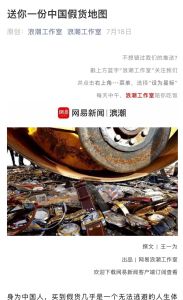
Recommendation
When you live in the country that has the world’s highest level of counterfeiting, you will end up buying fake products at some point. Chinese people are almost resigned to this reality. While the word “bootleg” may evoke images of poor street vendors in rundown, underdeveloped countries, China’s counterfeit industry actually thrives in its urban economic hubs. In an article published by NetEase’s WeChat wemedia account Wellestudio163, reporter Wang Yiwei walks readers through China’s counterfeit jungle to explain why eliminating fake products is so difficult. While the article skims over the effect of the counterfeit industry’s on the economy and society, it provides an overview of the workings behind China’s infamous reputation as “Bootleg Nation.” getAbstract recommends this report to anyone interested in economic development or law enforcement and to shoppers around the globe.
Summary
About the Author
Wang Yiwei is a writer for the WeChat wemedia account Wellestudio163, a product of the tech company NetEase.








Comment on this summary